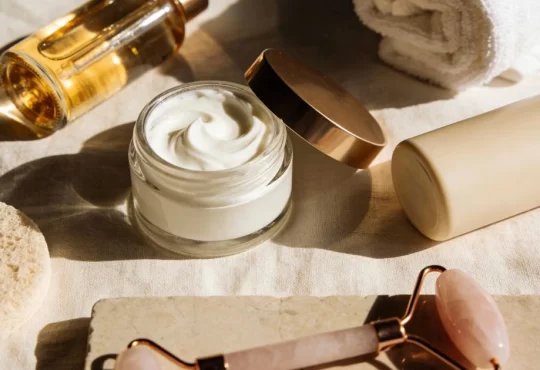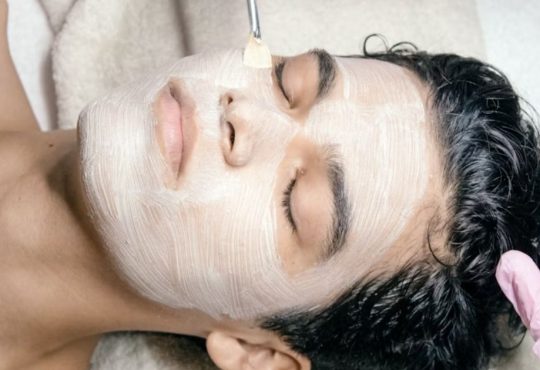
Acne, a common skin disorder, can manifest in various forms, such as pimples, whiteheads, blackheads, pustules, and inflamed cysts, posing a persistent challenge to many individuals. Fortunately, numerous preventive measures exist to mitigate its occurrence. This comprehensive acne prevention tips delves into ten practical ways to prevent acne and pimples, offering insights into skincare practices, lifestyle adjustments, and dietary considerations. Additionally, we provide invaluable tips for managing breakouts should they arise, empowering readers with the knowledge and tools to maintain clear, healthy skin.
Acne Prevention Tips: 10 Practical Ways to Avoid Breakouts!
Prioritize Gentle Cleansing
Maintaining clean facial skin forms the cornerstone of a healthy skincare routine. Regardless of whether acne is a concern, washing your face twice daily is essential to rid the skin’s surface of impurities, dead cells, and excess oils. However, striking a balance is necessary, as overwashing can aggravate skin conditions. Opt for lukewarm water when cleansing, and choose a mild facial cleanser to prevent further inflammation. Avoid harsh soaps like deodorant body soap, which can exacerbate irritation and discomfort. Instead, prioritize gentle cleansing techniques to nurture the skin’s delicate balance.
When cleansing, refrain from harsh scrubbing motions that could damage the skin. Instead, opt for a soft cloth or gently massage the cleanser into the skin, ensuring thorough coverage. Rough materials like washcloths or exfoliating gloves should be avoided to prevent unnecessary irritation. After cleansing, rinse your face well and pat it dry with a clean towel. It’s essential to use a fresh towel for each use and promptly toss it into the laundry hamper to prevent the spread of bacteria. By adopting these gentle cleansing practices, you can sustain a healthy complexion while reducing the chance of acne flare-ups.
Moisturize
Moisturizing is crucial in any skincare routine, especially when using acne products that cause dryness. These treatments often strip the skin of natural oils, leading to dryness and peeling. Incorporating a noncomedogenic moisturizer replenishes lost moisture, restores hydration, and maintains the skin’s natural barrier function, supporting overall skin health without worsening acne symptoms.
When selecting a moisturizer, consider your skin type and individual requirements. For oily skin, opt for lightweight, non-greasy formulas, while drier skin types may benefit from more prosperous, more emollient options. Combination skin can benefit from moisturizers that address dryness and oiliness, promoting balance across the complexion. Selecting the right moisturizer tailored to your skin type effectively combats dryness while reducing the risk of acne breakouts, leaving your skin soft, supple, and radiant.
Incorporate Over-the-counter Acne Products
Explore over-the-counter acne products as an accessible solution for addressing acne concerns. These readily available formulations, which do not require a prescription, harness the power of active ingredients like benzoyl peroxide, salicylic acid, glycolic acid, or lactic acid to target acne-causing bacteria and regulate excess oil production. However, it’s essential to approach their usage cautiously, as these potent ingredients may initially induce dryness or peeling. To mitigate potential side effects, begin with a conservative application, gradually increasing the amount and frequency as your skin acclimates to the treatment. By exercising patience and diligence, you can harness the benefits of these over-the-counter options to manage acne and achieve clearer, healthier skin effectively.
For those seeking a proactive approach to acne prevention, consider incorporating a new over-the-counter topical retinoid gel, such as Differin 0.1% gel, into your skincare routine. This innovative formulation prevents acne formation at its source, offering a comprehensive solution to acne management. By addressing the root causes of acne, including clogged pores and excess sebum production, this product helps maintain clearer skin over time. Nevertheless, individuals with sensitive skin should be cautious when introducing these potent treatments, as they may provoke adverse reactions. By carefully monitoring your skin’s response and adjusting your usage accordingly, you can effectively incorporate these over-the-counter acne products into your regimen to achieve smoother, blemish-free skin.

Use Makeup
During breakout periods, a minimalist approach to makeup is advisable to minimize exacerbating skin congestion and irritation. Steer clear of heavy makeup products like foundation, powder, or blush, as these can potentially worsen acne symptoms. Instead, opt for a lighter makeup routine or consider going makeup-free altogether to allow your skin to breathe and heal more effectively. If makeup is necessary, prioritize thorough removal at the end of the day to prevent pore blockage and mitigate the risk of acne flare-ups.
Choose oil-free cosmetics whenever possible, as they are less prone to causing clogged pores and breakouts. Additionally, avoid products containing added dyes and chemicals, which can further irritate sensitive or acne-prone skin. Seek out makeup labeled as “noncomedogenic,” indicating that it is formulated not to cause acne, and scrutinize the ingredients list on product labels before purchasing to ensure compatibility with your skin type. Taking these precautions can help maintain skin health and minimize the impact of breakouts on your complexion.
Be cautious about the hair products you utilize.
Your hair care routine significantly maintains your skin’s health, particularly during breakout periods. It’s essential to be mindful of your products, as certain haircare items like fragrances, oils, pomades, or gels can inadvertently transfer onto your face, potentially clogging pores and causing irritation. Opt for fragrance-free and non-comedogenic options to minimize the risk of skin reactions. Additionally, prioritize gentle shampoo and conditioner formulations to avoid stripping the scalp’s natural oils, which may result in overproduction and exacerbate acne.
Regular hair washing is crucial, especially if you have oily hair, as excess oil can contribute to your skin’s oiliness. Consider washing your hair frequently to maintain a clean scalp environment and prevent oil buildup. Furthermore, if you have long hair, keeping it away from your face can help prevent hair products from contacting your skin. By implementing these hair care practices and being mindful of your products, you can effectively minimize the likelihood of skin irritation and maintain a clear, healthy complexion.
Maintain Hands-off Approach
Maintaining a hands-off approach to your face is essential for preserving skin health and preventing the spread of bacteria. Refrain from touching your face or resting your cheek or chin on your hands, as this can introduce harmful bacteria and exacerbate inflammation. Additionally, resist the urge to pick or pop pimples with your fingers, which can result in infection and scarring, further complicating acne management. Instead, adopt gentle skincare practices and use specialized tools or products to address blemishes safely and effectively.
By avoiding direct contact with your facial skin and refraining from picking or popping pimples, you can reduce the likelihood of bacterial transmission, skin irritation, and scarring. Implementing these preventative measures helps maintain a clear, healthy complexion and supports overall skin wellness.
Protect Your Skin From the Sun
Defending your skin against the detrimental effects of the sun’s ultraviolet (UV) rays is paramount, mainly when dealing with acne-prone skin. Exposure to UV rays can exacerbate inflammation and redness while also contributing to post-inflammatory hyperpigmentation, which can leave behind dark discoloration. Certain acne medications further heightened this risk, which may increase the skin’s sensitivity to sunlight. Limiting sun exposure is crucial to mitigate these concerns, especially during peak hours from 10 a.m. to 4 p.m. when UV radiation is most potent. Embrace protective measures such as wearing long-sleeved clothing, pants, and a broad-brimmed hat to minimize direct sun exposure and reduce the risk of aggravating acne symptoms.
In addition to protective clothing, prioritize the application of a broad-spectrum sunscreen with 6% zinc oxide or higher and SPF 30 or higher at least 20 minutes before venturing outdoors. Opt for sunscreens labeled as “non-comedogenic” to prevent pore blockage and lessen the likelihood of new acne breakouts. Take the time to review the ingredients list on the sunscreen label to ensure it aligns with your skin’s needs and avoids potential irritants. Incorporating these sun protection practices into your skincare regimen can protect your skin from damaging UV rays, reduce inflammation, and maintain a clear, healthy complexion.
Be mindful of consuming dairy products and Foods.
Nurturing your skin from the inside out is paramount for cultivating health and radiance. While the relationship between certain foods and acne is still debated among experts, it’s prudent to avoid indulging in greasy and junk food options, as they may contribute to skin inflammation and exacerbate acne symptoms. Instead, prioritize consuming nutrient-dense foods such as fresh vegetables, fruits, and whole grains, which are abundant in essential vitamins, minerals, and antioxidants essential for optimal skin function. These wholesome foods not only provide vital nutrients for skin health but also aid in promoting overall well-being.
Furthermore, be mindful of your intake of dairy items and foods rich in processed sugars, as these have been linked to an increased risk of acne breakouts in some individuals. Limiting or avoiding these potential trigger foods can help maintain skin clarity and reduce the likelihood of acne flare-ups. Adopting a balanced diet of nourishing, skin-friendly foods can enhance your skin’s resilience, promote a healthy complexion, and achieve a radiant glow from within.

Do a Regular Exercise
Regular exercise benefits your overall health and is crucial in nurturing the overall well-being of your skin. Daily physical activity boosts blood circulation, ensuring essential nutrients and oxygen are efficiently transported to your skin cells, enhancing vitality and radiance. However, being mindful of potential skin irritation from specific clothing or exercise equipment types is essential. Opt for workout attire made from breathable, moisture-wicking fabrics that minimize friction, thus lowering the likelihood of skin irritation, ensuring comfort and an irritation-free exercise experience. Additionally, consider investing in well-fitting footwear and equipment to mitigate the risk of further chafing or rubbing against the skin.
Following your workout session, prioritize proper post-exercise skincare by promptly showering or bathing to cleanse away sweat, dirt, and bacteria accumulated during physical activity. This helps prevent pore blockage and maintains skin hygiene, reducing the likelihood of acne breakouts or skin irritation. Incorporating these skincare practices into your exercise routine guarantees your skin stays healthy and glowing, allowing you to reap the rewards of regular physical activity while reducing the likelihood of skin-related issues. Strive for a harmonious equilibrium between a healthy body and a glowing complexion by nurturing your skin alongside your fitness endeavors.
Relax!
Embracing moments of relaxation is paramount, as studies indicate a potential link between stress levels and the severity of pimples or acne. Acknowledging the impact of stress on skin health underscores the importance of addressing underlying stressors to promote overall well-being. Take time to introspect and identify the factors contributing to your stress levels. Whether it’s work-related pressures, personal challenges, or lifestyle factors, understanding the root causes of stress empowers you to implement targeted solutions to mitigate its effects on your skin. By cultivating mindfulness and self-awareness, you can develop effective coping mechanisms tailored to your unique stressors, fostering a sense of balance and tranquility.
Once you’ve identified stress triggers, explore strategies to alleviate tension and promote relaxation. Integrate stress-relief practices into your daily schedule, like meditation, deep breathing exercises, or pursuing hobbies that bring you joy. Additionally, prioritize self-care activities that nurture your mental and physical well-being, such as getting adequate sleep, maintaining a nutritious diet and remaining physically active. A holistic stress management approach can improve skin health and enhance overall quality of life.
Conclusion:
Consistently cleansing the skin with gentle care, meticulously selecting suitable skincare products, and minimizing contact with oil are effective strategies for reducing acne. However, if these methods fail to yield noticeable improvement within 6 to 8 weeks, it’s advisable to seek guidance from a dermatologist. A dermatologist can offer personalized recommendations and advanced treatments tailored to your skin concerns, ensuring a comprehensive approach to acne management. Feel free to seek professional guidance and advice from a skincare professional on achieving more transparent, healthier skin.





